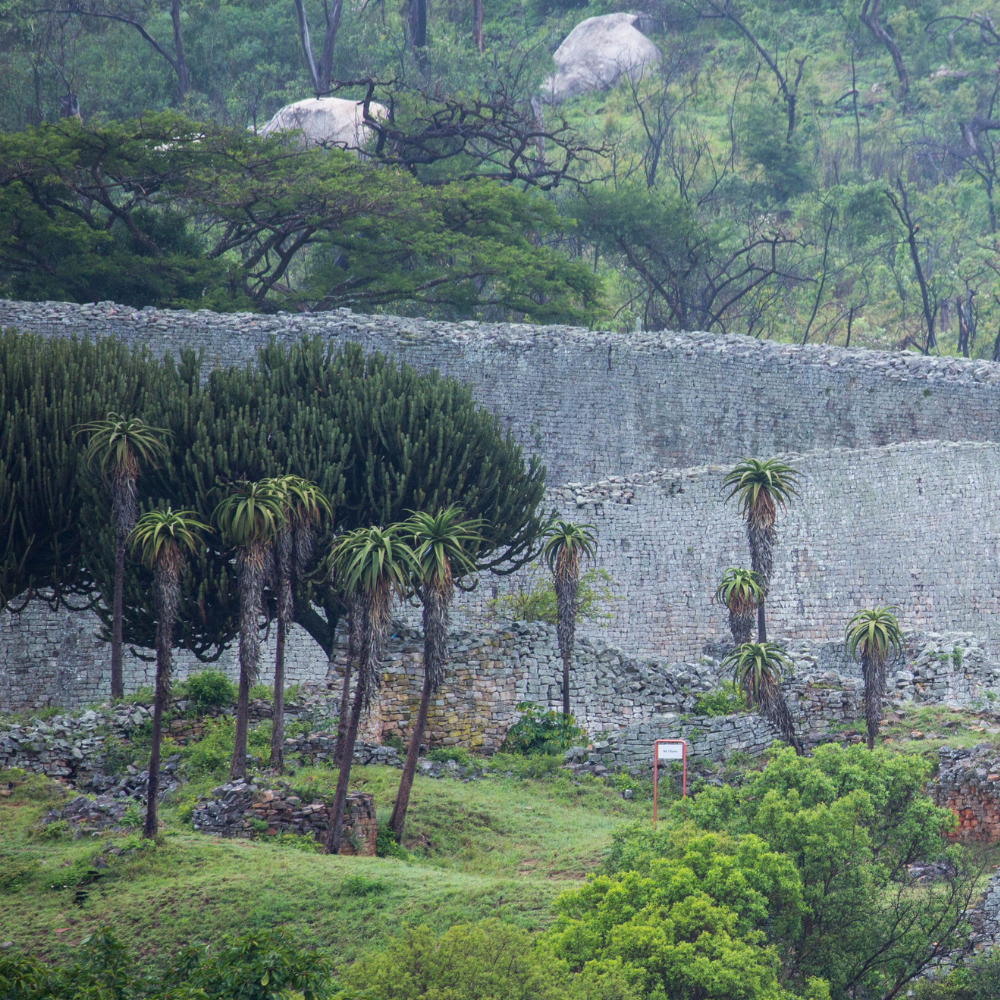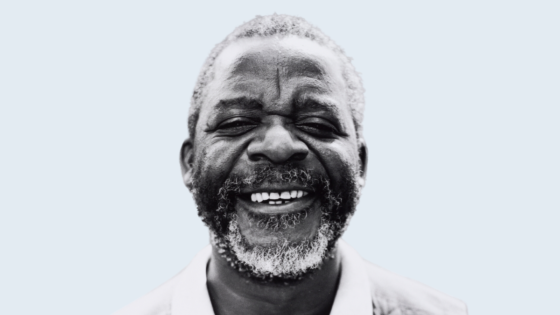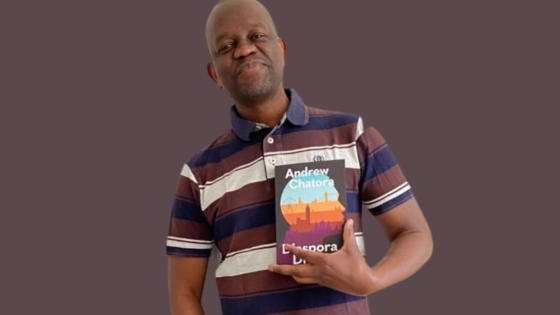I am privileged to reveal that this February, 2024, Andrew Chatora, the United Kingdom-based Zimbabwean novelist, is set to release his debut short story collection called “Inside Harare Alcatraz and Other Short Stories”.
The author of “Diaspora Dreams” has temporarily quit the novel to give us this charmed confluence of the novella, the short story, the vignette, and the poetic essay.
A collection of shorter forms usually allows the artist to tell his story in titbits, and with more varied urgency than what a novel allows.
This book of eleven pieces, is made up of briefly fleeting and powerful scenes. In his best moments, Chatora shows us the kaleidoscopic experiences of what it means growing up in Zimbabwe’s Dangamvura, Mutare, which breathes like Leopold Senghor’s Harlem.
One should not miss the exciting series of short pieces under the title “Estelle, the Shebeen Queen and other Dangamvura vignettes”, because Estelle rules here. She arranges and re-arranges everyone in Dangamvura, without having to leave her seat! She can toss over the so-called man’s world the way a gambler tosses a coin.
Upside down. Inside out.
Much early in the story, we are told that; “Estelle was a woman in her late fifties with a brood of daughters, mostly single mothers, who crowded her infamous four-roomed house — kwaMagumete as it was affectionately called.”
It is early days into Zimbabwe’s Independence, and most mavericks necessarily have to belong to the ended war, the party, the suburb, the market, the shebeen, and to Estelle!
Dangamvura Township is a catalogue of characters. There is, for example, the police officer, Wabenzi, who deliberately encourages gruesome tales about himself to float around, trying to cultivate a legendary folklore status in order to cow the community into submission. He is a cult hero in a city in a nation that is emerging from a gruesome war of liberation.
Then there is a respectable churchman, Baba Makuwaza, who is dragged from Estelle’s shebeen half-naked, with his torn boxers on display, as Estelle hurls invectives at both hapless Makuwaza and his wife.
Do not miss the other story, “Tales of Survival”, which is set in Epworth, on the outskirts of Harare. Each woman’s narrative in that series carries the day with pathos, contradictions and humour. That way, the vignettes bring to life the plight of low-class Harare women, and how they gradually find ways of grabbing at least little victories from their miseries.
They are struggling to struggle! And they struggle on.
“Of Sekuru Kongiri and Us” is a touching story. For me, it could be the best story in this whole collection. It is potentially a prize-winning short story! It takes the reader through various emotions.
The most delicate part of the story goes: “It’s important that I make it clear he was not always Sekuru Kongiri. First, he was Uncle Alfred . . . the once generous man increasingly became so tight-fisted and miserly with money, only to his side of the family of course, that Dr. Watson nicknamed him, ‘as tight fisted as concrete . . .’ and so Sekuru Kongiri became up to this day.”
The story has a unique pace and amazing African cultural depth, too. This tragic-comic story will not fail those interested in the vicissitudes of African culture.
The other story to look out for is “Smoke and Mirrors”. It is set in the UK. At Wendover Heights care home where Zimbabwean man, Onai, works, looking after vulnerable adults, he meets Iffy, a Nigerian woman, and as workmates from Africa, they bond easily.
But, one day, Iffy brings an exciting business plan to Onai: “I know about your wife and family, I’m not an idiot. It’s not a real marriage I’m talking of here, Onai. You have dual Zimbabwean-British citizenship, don’t you? Right.
“So that’s perfect for us; we would pay you whatever amount you want to falsely get married to someone from any of the African countries we deal with. It will be a sham marriage. The idea is to get them into the country, allow them to settle into their own life; they get a job, acclimatize to their mundane lives here, after which you file for divorce.
“Or sometimes, it may be someone already in the country, and they don’t have legal status. Dead easy, Onai; all parties win. She gets her papers; you get your money. It’s a win-win for everyone. Easy peasy.’’
In the end, one of them gets into agony because of all this! This story stinks! You may need a towel as you read it.
“Fari’s Last Smile” is a story that reads like something from the pages of Thomas Hardy’s “The Distracted Preacher and other Tales”. A man keeps on falling, but rising each time that he falls, in order to fall again.
But each time that he falls, he does it in a more novel way than before. He is even conned by people back home in Zimbabwe. They tell him that they are using the money he is sending them to build a house. The story teaches through tears.
In the title story itself, which is an intriguing mixture of fact and fiction, there are the heart-rending experiences of political prisoners, ironically in independent and contemporary Zimbabwe.
You stagger as you watch how those with power in Africa scuttle the chessboard, forcing us to doubt African beauty, African pride and African wisdom. But the so-called terrible man actually confesses in that story. He is the story. He is the only hope we have. You want to kiss that story in the end. A terrible beauty is born.
But Andrew Chatora is relentless. He crosses the English Channel and marches into the African Diaspora community of England, and gives us a snap survey of racism, which sits at the very core of contemporary England’s psyche.
In one of the stories, which is actually an essay short story, the child narrator, Anesu, bemoans the exigency of systemic and institutionalised racism. He is a first-generation Zimbabwean-British immigrant, who confronts a system his parents submissively put up with.
Sometimes you want to puke because the land which purports to be the quintessence of democracy is itself rotten at the very core, and is full of “white savages”!
In the story “A Snap Decision”, a girl, Pamhidzai, has to contend with the question: “Why did you stab your mother’s lover?”
What follows is a mixture of the past and present, and Chatora is back to his quintessential theme of the struggles between men and women in marriage, especially at the instigation of a foreign environment.
Then, there is a story in which you are sitting with your daughter in England and the fool innocently asks you, from nowhere: “Why don’t you use Shona names, since you are from Zimbabwe, and you are always banging on about preserving one’s cultural heritage and identity?”
Then, in explaining to her who you are, you take one winding road that unravels Britain’s long, but pitiful relationship with the migrant. For this story, dear reader, you will have to put on your spectacles!
I say that because here is a subliminal, meandering, but enlightening treatise on race, class, gender and identity politics in the Diaspora. You are caught up in the rough and tumble of Britain’s diverse cityscapes, names, ethnicity and place of abode. One has to deploy them tactfully in the politics of survival.
There is a somewhat sombre tone in “First Wave”, a story where a Zimbabwean nurse, Shumirai, working in the British national health service, takes a poignant tour de force of how she and her fellow colleagues fought and conquered a global pandemic which wreaked havoc on lives in its early days.
In equal measure, in a moving tribute, Shumirai mourns and lauds the passing of her work colleagues, patients and family as she grapples with the government’s mishandling of the crisis. Chatora charts new territory by offering dual perspectives from different black narrators’ lived experiences in both the former colony, Zimbabwe, and its colonial master, Britain, in a new normal shift, that is, post-independence reverse migration cycle of citizens to the former colony.
Originally appeared in The Herald
Andrew Chatora is a noted exponent of the African Diaspora novel. Candid, relentlessly engaging and vulnerable, his novels are a polarising affair among social critics and literary aficionados. His forthcoming novel, “Born Here, But Not in My Name”, is a long-run treatment of race relations in Britain, featuring the English classroom as a microcosm of wider society post-Brexit.
His debut novella, “Diaspora Dreams” (2021), was the well-received nominee of the National Arts Merit Awards in Zimbabwe, while his subsequent works, “Where the Heart Is”, “Harare Voices and Beyond” and “Inside Harare Alcatraz and Other Stories”, have cemented his contribution as a voice of the excluded. “Harare Voices and Beyond” recently won the 2024 silver category of the Anthem Awards in New York.











